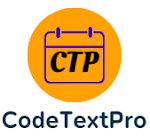What is ERP System?
Enterprise
Resource Planning is a system aimed to help in core business processes
management. It stores all the company data and divide it according to different
business areas. ERP consists of different modules, which maintain the work of
company’s department.
Why ERP?
1.
For
Management – to know what is happening in the company
2.
One
solution for better Management
3.
For
cycle time reduction
4.
To
achieve cost control & low working capital
5.
To marry
latest technologies
6.
To shun
the geographical gaps
7.
To
satisfy the customers with high expectations
8.
To be
Competitive & for survival
Advantages
of ERP
1. Higher management performance
2. Better accuracy and availability of information
3. Improved coordination
4. Precise planning
5. Enhanced reports
6. Scalability and flexibility
7. Cost-effectiveness
8. Easier access to management systems
9. Improved customer service
Disadvantages of ERP
1. Large cost of licensing and development
2. High costs to deploy and maintain
3. Requires training and practice
4. Requires tweaking
5. It takes time to realize its full potential
Roles of Vendors:
Vendor is responsible to fix bugs that are found during implementation process.
Vendor also provides training to the company’s users and also to the people who are involved in implementation process.
Vendors take care of quality control factors while developing ERP.
Vendors participate in all phases of an implementation in which he gives advice, answers to all technical questions about product and technology.
In the software industry, one of the most common classification of the ERP vendors is by tiers. Based on the company’s size and the ability to provide economical and business needs ERP vendors are classified as Tier 1, Tier 2 and Tier 3.
ERP vendors of type Tier
1 provide ERP software solutions for large multinational
corporations. These Tier 1 Vendors offer appropriate support
and service infrastructures for their customers all over the world.
Tier 2 vendors sell ERP products
for mid-sized businesses. ERP software solutions of that type are simple to
implement, manage and support.
Tier 3 ERP vendors (or
hybrid vendors) sell products that are designed for smaller companies.
Their customers have few locations and less complexity, their solutions usually
have the lowest total cost of ownership.
2. What are the types of Enterprise Resource Planning system exist?
We can
distinguish three main types:
·
Industry-specific ERP: helps
to organize working processes inside big organizations, can be both build from
the ground or customized for particular company;
·
Small business ERP: a
scaled-down version of regular Enterprise Resource Planning system. It usually
has such modules as HR, sales and orders or other required ERP components;
· Web-based ERP: run on remote server and the data is not stored in user’s computer.
AAs ERP solutions are provided in different types and combinations of modules, almost every company can choose an appropriate variant for its needs. But most frequently you can find ERP systems in such areas as:
· Trading Industries
· Different manufacturers (pharmaceutical, food, cosmetics, auto and
others)
·
Fabric process
· Service Industries
Enterprise Resource Planning modules are the building parts of the ERP system. Each ERP module is focused on a particular business area: HR, Manufacturing, Sales and others. The number of modules may vary in dependence of the company size and preferences.
5. What are the basic ERP components?
As we’ve
already mentioned, the number of ERP components may vary. But the core modules
which are essential for many organizations usually are:
· Customer Relationship Management
· Finance
· Sales and marketing
· Production and material management
· Manufacturing
What is
the base of every company? Of course, it’s staff. Company’s employee is what
the company starts from. Exactly this resource makes its best for
organization’s operation and development. That is why HR team needs a tool for
efficient staff management.
HR ERP module includes employee records and helps to manage such actions like:
salary and payment reports;
·
attendance tracking;
·
performance reviews;
·
promotion;
·
planning of working and holidays hours and others
Customer Relationship Management (CRM)
After HR module this one on the second place for its importance as
the main aim is, of course, to meet the customer’s needs. CRM component stores
all the customer’s data and helps to analyze it in order to perform the above
goal. It provides opportunity to track buying history, calls, communication.
CRM in this way boosts organization performance, as on the base of the stored
info, it is much easier to consider customer’s preferences and provide quality
service.
Production and Material management
To begin
sale something first we should have a plan. A plan of how many material do we
need to know how many products we can make. Here we turn to Production and
Material management. This module provides info about:
·
material stock level in the warehouse;
·
item usage;
·
inventory requirements;
· inventory status reports.
These two
components can be presented both together and separately. But usually they have
a similar function. Sales and marketing module is one of the core ERP
components as it is the basis for the company revenue. Thus, it is very
important to take care of marketing strategy in order to have sufficient funds
for business management.
This
module usually includes:
·
sales order;
·
customer management;
·
marketing methods;
·
quotation management;
· sales invoices drafting
Not every company has manufacturing but in case organization has it, this module is a must. It provides all the necessary information for manufacturing run. Manufacturing ERP module can include:
bill of materials;
·
records of working orders;
Manufacturing methods and others.








1 Comments
47C2CA32CC
ReplyDeletebeğeni satın al
Bot Takipçi
Tiktok Takipçi Kasma
Tiktok Takipçi Atma
Ucuz Takipçi